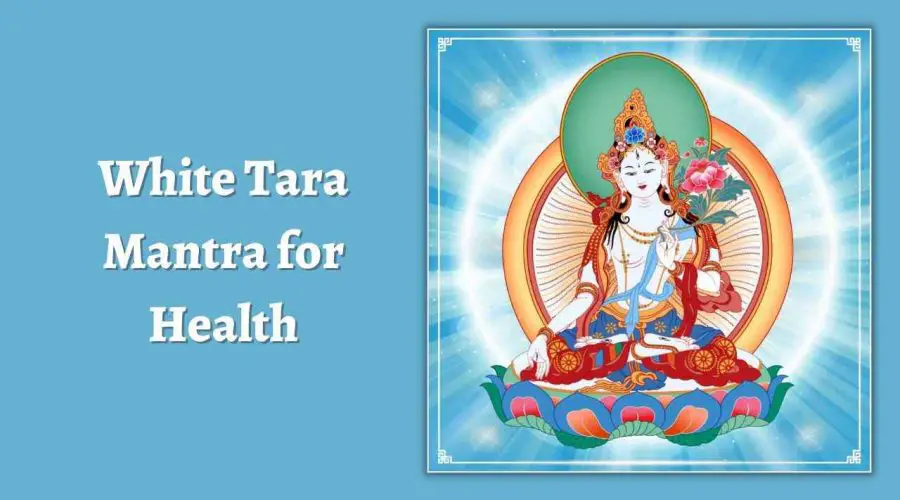White Tara Mantra: Your Ultimate Mantra for Health, Healing and Longevity
Tibetans typically consider Tara to have 21 incarnations. In each incarnation, such as White tara, Blue Tara and Black Tara, she delivers distinct energy or virtue to help us in our spiritual journeys.
Green Tara and White Tara are the two most popular of these 21 Taras.
White Tara’s Tibetan name, Dolkar, is a shortened version of Dolma Karpo, which translates to “White Tara.”
White Tara (Sitatara) is linked to longevity. Her mantra is frequently chanted with a specific individual in mind. She is depicted with seven eyes (observe the palms of her hands, the soles of her feet, and her forehead) to reflect the vigilance of the loving mind.
Tibetans specifically pray to White Tara for health, healing, and longevity. She provides healing for our wounds, whether they are physical or psychological.
White Tara Mantra
OM TARE TUTTARE TURE MAMA AYUH PUNYA JNANA PUSTIME KURU SVAHA
OM TARE TUTTARE TURE MAMA AYUR PUNE GYANA PUNTIN KURU SOHA (Tibetan Version)
This is essentially a strong request (even a demand) for increased longevity, merit and wisdom, where AYUR, PUNE, and GYANA refer to life, merit and wisdom.
Word Meanings
Mama means “mine” and indicates that you’d like to possess these qualities of long life, merit, wisdom, happiness, etc. You can of course choose to wish these qualities for someone else — perhaps for a teacher or for a loved one who is ill.
Ayuh is long life (as in Ayurvedic medicine).
Punya means the merit that comes from living life ethically, and this merit is said to help one to live long and happily. In order to become enlightened, we need to accumulate merit (that is, to develop positive qualities through living ethically and meditating)
Jnana is wisdom. In order to become enlightened, we need to develop wisdom through deep reflection.
Pushtim means wealth, abundance, or increase.
Kuru is a mythical land to the north of the Himalayas, which was said to be a land of long life and happiness (it may have been the original northern home of the aryans). But here the word kuru is a verb form meaning “do it!” or “make it so!” (second person singular active imperative or the root kṛ if that’s of any interest to you) which is what it means here. With this “make it so!” we’re imploring White Tara for an increase in wisdom, merit, and long life so that we can gain enlightenment and help all sentient beings
svaha is an exclamation meaning “hail” or “may blessings be upon” and is a common ending to Buddhist mantras.
The mantra is flexible, so if you wish to increase something else, you can just substitute in words for that which you wish to increase, and if you want to pray for your spiritual master’s long life, you can replace the word MAMA (which refers to me or mine) for your master’s name.
Pronunciation Notes:
- a is pronounced as u in cut
- aa is like an in father
- jnana is meant to be pronounced with a hard g, but many people pronounce it as “nyaanaa”
- the s in pushtim has a dot under it which makes it into a sh sound, as in English push
- m in pushtim is pronounced ng, as in the song
Benefits of White Tara Mantras
White Tara possesses amazing strength. White Tara relates to sentient beings as a mother would to her children. She is fast to grant us happiness, a long life, and the development of wisdom, as well as to grant us our wishes.
By reciting the White Tara mantra you have the ability to eliminate problems from your life and extend your life.

